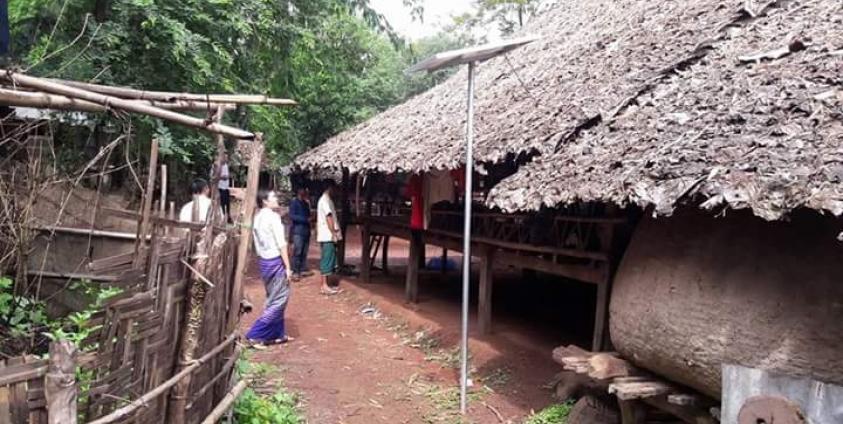Over 11,000 rural households in Kayin (Karen) State are set to newly receive electricity thanks to a long-awaited solar panel program.
Under the National Electrification Project (NEP), the World Bank and the Department of Rural Development are installing heavily subsidized solar panels, which were sold to villagers at a fraction of the real cost. The panels are being installed atop more than 11,000 households in five townships throughout the state, according to an official from Kayin State’s Department of Rural Development.
The department’s director, U Nay Oo, told KIC News that the project is targeting rural villages in Hpa-an, Hlaingbwe, Kawkareik, Kya-in Seikkyi and Thandaung townships that are currently not connected to the national power grid.
“Solar power systems are being installed for 11,442 households across the five townships. The NEP project has focused on installing them in villages that are more than ten miles away from the national power grid to aid in social, economic, education and health issues,” he said on July 6.
Solar panels are installed free-of-charge on religious buildings and places relating to education and health. The installation at all 11,442 homes is expected to be completed by August, he added.
ICTS Company won the tender to install solar panels in Mon and Kayin states, as well as in Tanintharyi (Tenasserim) Region.
Under the NEP project, three types of solar panels are offered: Villagers buying solar panels worth K300,000 pay K90,000 in three instalmments, while those buying solar panels worth K480,000 pay K150,000 in three installements, and solar panels worth K520,000 cost the villagers K210,000, in three payments of K70,000.
“In the past, we only had candlelight. Now that our solar panel has been installed, our child can study better at night. We don’t need to go to the shop to recharge our phones and we can also charge the batteries for equipment for extracting [latex] from rubber [trees],” said Ko Chan Mon from Naung Dayt Village, Kya-in Seikkyi township.
Around 70 percent of the country is not hooked up to the national power grid, but the government has set an ambitious target of 100pc connection by 2030. In 2014, the World Bank pledged US$1 billlion in finanial support for boosting Myanmar's electricity generation, transmission and distribution.
The government applieced for and received $400 million in loans from the World Bank to expand the national power grid and electrify off-grid rural areas.
In a separate project aimed at bolstering the state's electricty, Kayin State officials are in talks for a controversial, 1280-megawatt coal-fired power plant in Wut Gyi Village, Hpa-an township.








